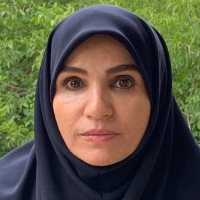Analysis of the position of the habit and agency in human education: Deep thinking on the educational views
The present study aims to identify the position of the habit and agency in human education. The method of this study was the conceptual analysis, focusing on defining clearly the meaning of the concept by explaining accurately its relationships with the other concepts. The habit is a human state which is created by the repeated actions and it gradually eases the difficulties of doing the action. The agency is based on the concepts like the freedom of action, accepting the responsibility, and accountability in revealing an action and it stems from the desire, epistemological, and voluntary basis in the human existence. The most important findings of this research include the necessity of nurturing the agency in the process of training and postponing it temporarily, eliminating the responsibility of the learner when divesting the agency, negating the absoluteness in the development of the agency due to the possibility of mistake in the basis of the action, the dependence of the self-control in agency to the faith maturity and the value knowledge of the agent, the double value of the conscious habits due to forming in the context of the agency, the value of the unconscious habits during the agency weakness, the effective role of the unconscious habits in strengthening the basis of the action, the limitations of the conscious habits in the dependence on the basis of the action, and preventing the decline of the habits through linking with the value and the emotional stimuli. The results showed that the conscious habits are formed in the context of the agency and they do not contradict it. The unconscious habits, in the position of the desired end, are in conflict with nurturing the agency, and as the facilitator complement the agency development. Also, nurturing "the agency" and "the conscious habits" act as "the mediating goals" and nurturing "the unconscious habits" act as "the instrumental goals" in the educational system.
-
Analysis of How Active Centers Identify and Cultivate Preschool Children's Talent Based on the Lived Experience of Educators and Officials in Karaj
Samaneh Zanganeh, *, Mohadeseh Khattat
Journal of Applied Psycology Research, -
Identification of the Dimensions and Components of Academic Strategic Curriculum Planning Models in Higher Education Using a Meta-Synthesis Method
Sorour Rahrovan, Mohammad Javadipour *, Golnar Mehran, Marziyeh Dehghani, Keyvan Salehi
Journal of Measuring and Educational Evaluation Studies, -
Jurisprudential Requirements in Habit-Based Education: An Intellectual Analysis on Imam Ali's View
Sedigheh Mahdavi Kani, *
Scientific Journal of Islamic Education, -
Rumors management requirements in organizational relationships; From the perspective of the Holy Quran
Akram Goodarzi, *
Religion & Communication,




